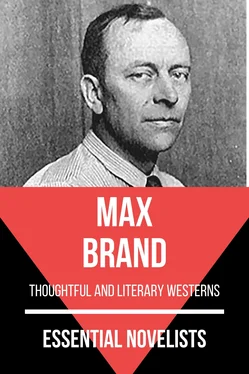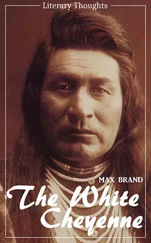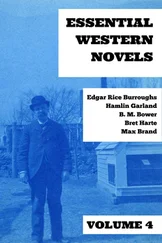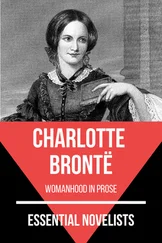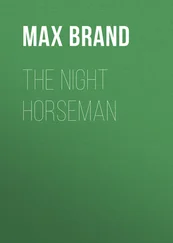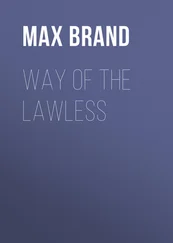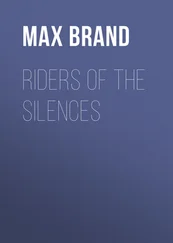“Look at them eyes, boys,” he suggested. “Molly has been beatin' us all day and she looks like she's fightin' us still.”
The sheriff was not a man of very many words, and surely of little sentiment; perhaps it was the heat of the long chase which now made him take off his hat so that the air could reach his sweaty forehead. “Gents,” he said, “she lived game and she died game. But they ain't no use of wastin' that saddle. Take it off.”
And that was Grey Molly's epitaph.
They decided to head straight back for the nearest town with the body of Harry Fisher, and, fagged by the desperate riding of that day, they let their horses go with loose rein, at a walk. Darkness gathered; the last light faded from even the highest peaks; the last tinge of color dropped out of the sky as they climbed from the valley. Now and then one of the horses cleared its nostrils with a snort, but on the whole they went in perfect silence with the short grass silencing the hoofbeats, and never a word passed from man to man.
Beyond doubt, if it had not been for that same silence, if it had not been for the slowness with which they drifted through the dark, what follows could never have happened. They had crossed a hill, and descended into a very narrow ravine which came to so sharp a point that the horses had to be strung out in single file. The ravine twisted to the right and then the last man of the procession heard the sheriff call: “Halt, there! Up with your hands, or I'll drill you!” When they swung from side to side, craning their heads to look, they made out a shadowy horseman facing Pete head on. Then the sheriff's voice again: “Gregg, I'm considerable glad to meet up with you.”
If that meeting had taken place in any other spot probably Gregg would have taken his chance on escaping through the night, but in this narrow pass he could swing to neither side and before he could turn the brown horse entirely around the sheriff might pump him full of lead. They gathered in a solemn quiet around him; the irons were already upon his wrists.
“All right, boys,” he said, “you've got me, but you'll have to give in that you had all the luck.”
A moment after that sharp command in the familiar, dreaded voice of Pete Glass, Vic had been glad that the lone flight was over. Eventually this was bound to come. He would go back and face the law, and three men lived to swear that Blondy had gone after his gun first.
“Maybe luck,” said the sheriff. “How d' you come back this way?”
“Made a plumb circle,” chuckled Gregg. “Rode like a fool not carin' where I hit out for, and the end of it was that it was dark before I'd had sense to watch where the sun went down.”
“Kind of cheerful, ain't you?” cut in Ronicky Joe, and his voice was as dry as the crisping leaves in an autumn wind.
“They ain't any call for me to wear crepe yet,” answered Gregg. “Worst fool thing I ever done was to cut and run for it. The old Captain will tell you gents that Blondy went for his gun first—had it clean out of the leather before I touched mine.”
He paused, and the silence of those dark figures sank in upon him.
“I got to warn you,” said Pete Glass, “that what you say now can be used again you later on before the jury.”
“My God, boys,” burst out Vic, “d'you think I'm a plain, low-down, murderin' snake? Harry, ain't you got a word for me? Are you like the rest of 'em?”
No voice answered.
“Harry,” said Ronicky, “why don't you speak to him?”
It was a brutal thing to do, but Ronicky was never a gentle sort in his best moments; he scratched a match and held it so that under the spluttering light Gregg found himself staring into the face of Harry Fisher. And he could not turn his eyes away until the match burned down to Ronicky's finger tip and then dropped in a streak of red to the ground.
Then the sheriff spoke cold and hard.
“Partner,” he said, “in the old days, maybe your line of talk would do some good, but not now. You picked that fight with Blondy. You knew you was faster on the draw and Hansen didn't have a chance. He was the worst shot in Alder and everybody in Alder knew it. You picked that fight and you killed your man, and you're goin' to hang for it.”
Another hush; no murmur of assent or dissent.
“But they's one way out for you, Gregg, and I'm layin' it clear. We wanted you bad, and we got you; but they's another man we want a lot worse. A pile! Gregg, take me where I can find the gent what done for Harry Fisher and you'll never stand up in front of a jury. You got my word on that.”
Those mountains above the Barry cabin were, as he told Vic Gregg, inaccessible to men on horseback except by one path, yet there was a single class of travelers who roamed at will through far more difficult ground than this. Speaking in general, where a man can go a burro can go, and where a burro can go he usually manages to carry his pack. He crawls up a raged down-pitch of rocks that comes dangerously close to the perpendicular; he walks securely along a crumbling ledge with half his body over a thousand yards of emptiness. Therefore the prospectors with their burros have combed the worst mountains of the West and it was hardly a surprise to Kate Barry when she saw two men come down the steepest slope above the cabin with two little pack animals scrambling and sliding before them. It was still some time before nightfall, but the sun had dropped out of sight fully an hour ago and now the western mountains were blackening against a sky whose thin, clear blue grew yellow towards evening.
Against that dark mass of the mountainside, she could not make out the two travelers clearly, so she shaded her eyes and peered up, high up. The slope was so sheer that if one of the four figures lost footing it would come crashing to her very feet. When they saw her and shouted down the sound fell as clearly as if they had called from the cabin, yet they had a good half hour's labor between that greeting and the moment they came out on the level before Kate. From the instant they called she remained in motionless, deep thought, and when they came now into full view, she cried out joyously: “Buck, oh Buck!” and ran towards them. Even the burros stopped and the men stood statue-like; it is rarely enough that one finds a human being in those mountains, almost an act of Providence that lead to a house, and a miracle when the trail crosses the path of a friend. The prospectors came out of their daze with a shout and rushed to meet her. Each of them had her by a hand, wringing it; they talked all together in a storm of words.
“Kate, I'm dreamin'!—Dear old Buck!—Have you forgotten me?—Lee Haines! I should say not.—Don't pay any attention to him. Five years. And I've been hungerin' to see you all that—.—Where have you been?—Everywhere! but this is the best thing I've seen.—Come in.—Wait till we get these packs off the poor little devils.—Oh, I'm so glad to see you; so glad!—Hurry up, Lee. Your fingers asleep?—How long have you been out?—Five months.—Then you're hungry.—We've just ate.—But a piece of pie?—pie? I've been dreamin' of pie!”
A fire already burned in the big living-room of the cabin, for at this season, at such an altitude, the shadows were always cold, and around the fire they gathered, each of the men with half a huge pie before him. They were such as one might expect that mountain region to produce, big, gaunt, hard-muscled. They had gone unshaven for so long that their faces were clothed not with an unsightly stubble but with strong, short beard that gave them a certain grim dignity and made their eyes seem sunken. They were opposite types, which is usually the case when two men strike out together. Buck Daniels was black-haired, with an ugly, shrewd face and a suggestion of rather dangerous possibilities of swift action; but Lee Haines was a great bulk of a man, with tawny beard, handsome, in a leonine fashion, more poised than Daniels, fitted to crush. The sharp glance of Buck flitted here and there, in ten seconds he knew everything in the room; the steady blue eye of Lee Haines went leisurely from place to place and lingered; but both of them stared at Kate as if they could not have enough of her. They talked without pause while they ate. A stranger in the room would have sealed their lips in utter taciturnity, but here they sat with a friend, five months of loneliness and labor behind them, and they gossiped like girls.
Читать дальше
